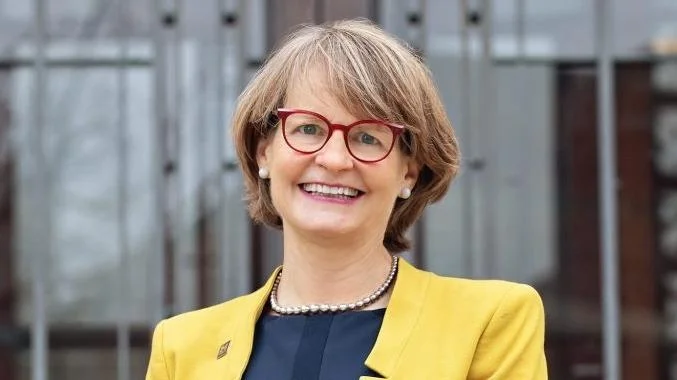Laurie McCauley Provost and Executive Vice President for Academic Affairs | University of Michigan-Ann Arbor
Laurie McCauley Provost and Executive Vice President for Academic Affairs | University of Michigan-Ann Arbor
A technology developed in a University of Michigan laboratory is now central to devices made by companies such as Fitbit, Garmin, and Whoop. Ambiq, the company behind this innovation, began as Ambiq Micro in 2010 and has launched its initial public offering on the New York Stock Exchange under the ticker symbol AMBQ. The firm is expanding its focus to include running artificial intelligence models on small devices.
“Ambiq is a powerful example of how federally funded research can become a technology that improves the everyday lives of many people, in this case by enabling more capable and convenient wearable devices,” said Dennis Sylvester, U-M professor and chair of electrical and computer engineering.
Ambiq was co-founded by Sylvester; David Blaauw, also a professor at U-M; and Scott Hanson, who serves as chief technology officer. Hanson completed his doctorate at U-M in 2008 with support from the National Science Foundation.
The company now employs 190 people. Its chips have been used in 270 million commercial devices. Ambiq’s current direction involves developing solutions to run AI locally on wearables and other electronics—addressing challenges related to power consumption for such tasks.
“Our chips are embedding intelligence everywhere,” Hanson said. “One of the coolest things is I can walk through any airport, any shopping mall, go to one of my kids’ sporting events, and I see the impact of our chips.”
The name "Ambiq" comes from “ambient intelligence” to suggest unobtrusive computing embedded into daily life.
In their original research at U-M during the mid-2000s, Hanson explored reducing voltage requirements for transistors—the basic switches inside computers—to make battery-powered sensors more efficient. This approach faced skepticism but ultimately proved successful.
“When we first came out with this technology and showed it to other companies in this space, several technical people said this was exactly the wrong way to go about it,” Blaauw said. “Sometimes what turns out to be a good idea is not always well received. And it’s not always easy to distinguish, as some ideas are really not good ideas. Even if the idea is good, finding the market fit takes time and real perseverance.”
Hanson’s early prototypes were up to five times more energy efficient than existing products but posed new challenges due to their sensitivity at lower voltages—a problem he worked on with his team before releasing commercial products.
Sylvester noted that academic success does not guarantee market viability: “In research we make a few copies of a device, or a few dozen, and say, ‘Hey, this works!' A company has to ship millions, and all of them have to work.”
Hanson chose entrepreneurship after completing his Ph.D., partnering with Blaauw and Sylvester through U-M Innovation Partnerships (formerly Tech Transfer). He spent two additional years troubleshooting while supported by an Innovation Partnerships grant.
“Scott leveraged every opportunity to present his work at conferences alongside industry veterans,” said David Hartmann from Innovation Partnerships. “This honed his product technology model and provided the confidence to go to the big idea of an ultra-low-power microcontroller. While this was a very aggressive business model, Scott and his advisers were up to the challenge.”
Ambiq’s first product was an ultra-low-power clock chip used in credit cards for dynamic security codes—a step that helped solve manufacturing questions before moving toward building microprocessors like those found in its Apollo series.
Blaauw and Sylvester later founded CubeWorks—a startup creating millimeter-scale computers used for temperature tracking during shipping or scientific studies involving wildlife migration or medical research.
Both professors hold endowed chairs within U-M’s College of Engineering: Sylvester as Peter and Evelyn Fuss Chair; Blaauw as Kensall D. Wise Collegiate Professor.
Sylvester, Blaauw, and the University have financial interests in both Ambiq and CubeWorks.






 Alerts Sign-up
Alerts Sign-up